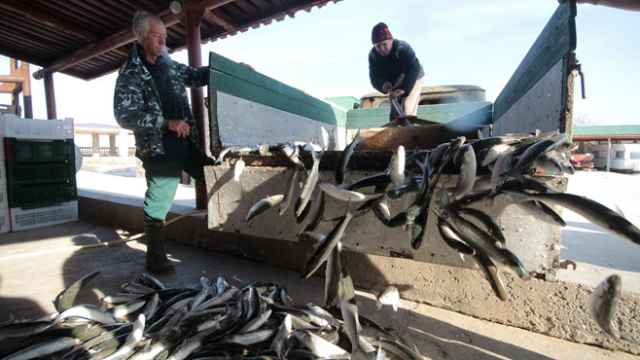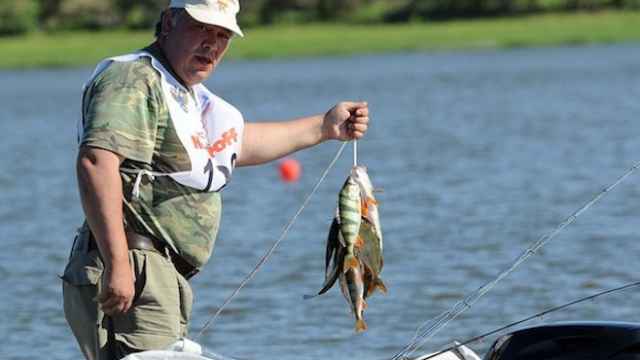EU ministers will on Monday debate whether European fishermen can extend their quota limits next year to compensate for the loss of Russian customers following Moscow's ban on Western food imports.
The European Union's fisheries chief said she would ask ministers to support her proposal to allow member states to carry over up to 30 percent of their 2014 fishing quotas to next year because of the ban.
"Since Russia has introduced an embargo on imports of European fisheries products this summer, we agreed that we need to help our fisheries sector in Europe — and quick," Maria Damanaki said in a statement.
EU fish exports to Russia were worth about 200 million euros ($250 million) last year, or 5 percent of the EU's total fish exports.
In September Damanaki said that she was looking into the possibility of increasing the amount that member states could carry over but had to check with the Commission's scientific advisers that relaxing the bloc's fishing limits would not endanger the sustainability of Europe's depleted fish stocks.
The EU has committed to ending decades of over-fishing and to rebuilding its fish stocks by 2020. Its annual catch limits regularly produce heated debate and those for 2015 will be discussed by EU agriculture ministers on Monday.
Damanaki said relaxing the fishing limits would not have a detrimental effect on Europe's fish stocks, and the International Council for the Exploration of the Sea (ICES) — which advises the Commission on its fisheries policy — had said that it would have a "slightly positive effect for sustainability."
The main countries exporting fish products to Russia in 2013 were Denmark, Latvia, Britain , Ireland, Estonia, Spain and France.
A Message from The Moscow Times:
Dear readers,
We are facing unprecedented challenges. Russia's Prosecutor General's Office has designated The Moscow Times as an "undesirable" organization, criminalizing our work and putting our staff at risk of prosecution. This follows our earlier unjust labeling as a "foreign agent."
These actions are direct attempts to silence independent journalism in Russia. The authorities claim our work "discredits the decisions of the Russian leadership." We see things differently: we strive to provide accurate, unbiased reporting on Russia.
We, the journalists of The Moscow Times, refuse to be silenced. But to continue our work, we need your help.
Your support, no matter how small, makes a world of difference. If you can, please support us monthly starting from just $2. It's quick to set up, and every contribution makes a significant impact.
By supporting The Moscow Times, you're defending open, independent journalism in the face of repression. Thank you for standing with us.
Remind me later.





